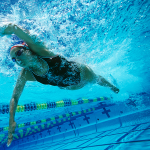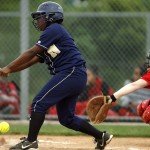
Tween is the Best Time to Build Mental Skills
Many years ago when I first started doing this work I didn’t think I wanted to work with kids. However, they have taught me to be more flexible, grow, and overall better adapt. Currently, my practice is made up of 90% tweens (ages 11-14) and what I’ve realized is that this age is the best time to develop mental skills.
Pre-tween to tween
The top reasons kids play sports through the ages of 10-11 is because:
- they want to have fun
- they want to socialize with their friends
- they like learning new skills
During this stage, most kids are running around having fun. There’s not a lot of conscious thought about the sport, how the sport impacts them, how they impact other kids, or the pressure to perform.
Around 11-12 years old (6th grade), this all starts to change. Now, kids start to specialize. Their sport takes up a lot time and sport is less fun – they have to get stronger and better and keep up with everyone else if they want to be good. It’s around this age that kids realize what being competitive means and how good they are at their sport impacts their future. “If I am not good enough, I won’t play. If I don’t play, I won’t get into college. If I make a mistake, I am not good enough. I am so nervous we might lose. What if I can’t score today.” It’s the first time (really) that a child realizes there’s more at stake than they realized and they don’t always know what to do about it. It’s the first time they are confronted with real emotions that impact their ability to perform.
How kids deal
Kids don’t usually learn how to deal with their advancement in sport. No one teaches them and for most, there is no class to help them. A kid bombs a shot to the goal and crumbles to the ground with frustration. A number one ranked tennis player loses her first match and throws her racket. A competitive swimmer doesn’t win the 100 fly or drop time and she starts to cry. These real-life examples are some of the ways kids ‘figure out’ how to deal with the pressure to perform. And these actions start the negative cycle.
What do I mean by figure out? At this age, an action happens and if it’s deemed unacceptable and poor performance by the child, they assume how to deal with it based on what’s in front of them in their environment: cry, throw, scream, or quit.
Why tweens are the perfect age
At this age, kids are just beginning to feel the impact of their emotions on their sports performance. What I’ve found over the years of doing work with this age group is that most don’t want to feel powerless over their emotions and want the skills to deal with their environment. Most are open, adaptable, and ready to figure out what they can do to feel better and enjoy participating in their sport. They choose to learn how!
Why kids drop out
It’s also at this age where kids start dropping out. Why? Because they feel emotionally out of control and don’t know what else to do to feel better. Kids do not want to feel, act out, or respond in some of the ways they do, but they don’t know how to do it any differently. Believe me, if they did, they would! In these situations, they are frustrated and kids feel like their only choice is to drop out. Here’s the unconscious conversation in a kid’s head: I can cry, throw a tantrum, or embarrass myself, or I can quit.
The alternative to quitting
Remember how I mentioned earlier how this is a great… no perfect time for tweens to develop mental skills? They just need to learn the practical skills to turn those emotions into a more positive experience. And then learn how to apply these skills to deal with their environment so they can perform optimally and have fun.
The other great thing about helping tweens at this age is that the work of building mental skills doesn’t take years or a lifetime. Generally in 12+ sessions, my tween clients feel more confident, less nervous, can let go of mistakes, are more positive, can successfully advocate for themselves, and they feel more in control of whatever arises. They are eager to be in a better place which results in a success rate with tweens of 99%.
A Mom asked – will kids grow out of this
In a consult last night, a Mom was talking about how one of her other sons struggled in his sport but grew out of it. She asked me if her other son would too. She had told me that her son’s struggle had been going on since 6th grade (he was now in 8th) and that it was getting worse. I told her, in my experience, given those circumstances it would not get better and in fact, it will only get worse.
I can’t tell you what the tipping point is but there is only a very small percentage of kids who grow out of it and learn how to deal with these emotions on their own. Many times someone might give just the right advice, or say just the right thing that they internalize and create the change for themselves.
The best way to approach this starts with a conversation. We can discuss your unique situation and circumstances, and decide the best plan of action for you and your tween.




